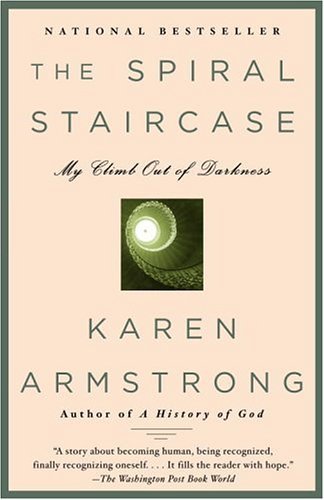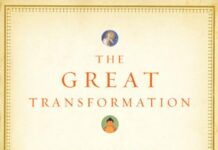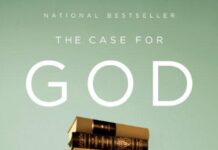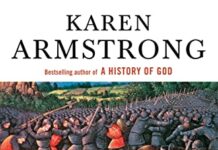
Ebook Info
- Published: 2007
- Number of pages: 338 pages
- Format: EPUB
- File Size: 0.32 MB
- Authors: Karen Armstrong
Description
NATIONAL BESTSELLER • The New York Times bestselling author of A History of God delivers the gripping, inspirational story about her own search for God. “A story about becoming human, being recognized, finally recognizing oneself…. It fills the reader with hope.” —The Washington Post Book WorldIn 1962, at age seventeen, Karen Armstrong entered a convent, eager to meet God. After seven brutally unhappy years as a nun, she left her order to pursue English literature at Oxford. But convent life had profoundly altered her, and coping with the outside world and her expiring faith proved to be excruciating. Her deep solitude and a terrifying illness–diagnosed only years later as epilepsy—marked her forever as an outsider. In her own mind she was a complete failure: as a nun, as an academic, and as a normal woman capable of intimacy. Her future seemed very much in question until she stumbled into comparative theology. What she found, in learning, thinking, and writing about other religions, was the ecstasy and transcendence she had never felt as a nun.
User’s Reviews
Reviews from Amazon users which were colected at the time this book was published on the website:
⭐There was a lot of food for thought. I am grateful to the author for her transparent disclosure to the point of vulnerability. The book prompts anyone who is thinking about their own response to the prospect of God in their life, to think a little harder.She DOES come across as a wee bit wrapped up in herself, I must say. But don’t we all to some degree? Otherwise there would be no need to strive towards becoming compassionate towards others – a topic she explores towards the end of the book, and in subsequent books and talks.About her take on compassion, I was disappointed that in THIS book at least, she goes no further – in essence – than “put yourself in the other person’s shoes,” and “if you can’t say anything good about someone, don’t say anything at all,” sage words I learned from my mother a long time ago. I assume that she ventures into more positive territory in this regard in her subsequent work, but I don’t know, and after reading her “Case for God” book and this book, over six hundred pages in all, I need to move on to other pastures in my reading.
⭐In Karen Armstrong’s The Spiral Staircase, Karen goes from an eager, excited seventeen year-old girl, to a nun, to a frustrated (but patient) nun, to a depressed nun, to a layperson, to an epileptic, to an outcast, to an atheist, to a researcher, to an author, to a theologian, etc, etc… Yes, she has been through a lot. She vividly describes the pain and anguish she felt during her convent years, the years of frustrating psychiatric therapy (which never did diagnose her epilepsy), and basically feeling that she had been wandering her whole life, at least since entering the convent as a teenager. She ends up leaving with a subconscious animosity towards God and all religion, and, upon encountering the anti-religious England she had never known before, found her feelings surfacing, and culminating, to a point where she stops believing all together, dismissing it all as “bonkers.” On the advice of a friend, Karen began to write about her journey, and after more and more writing, found herself immersed into the vast array of the world’s religions. She unknowingly started back on the path towards God.What I found interesting was that instead of turning away from God at seventeen (as many adolescents such as myself do), and later turning back, Karen turned towards God and religion as an adolescent, and later turned away. Because of this, for most of her adulthood, it was hard for her to even think about religion without becoming angry. She felt that it was a prison that held humanity in a mental cage, built of lies, corruption, and covered in blood. Only after experiencing “the experience” of Jerusalem, and spending hours and hours researching such people as Muhammad, Buddha, Jesus, several saints, apostles, and mystics, she realized how deep it really went. Eventually, she “grew to love” what she studied, and made it her life’s work to bring them, and their common messages, to others. In a way, trying to make sense of her hatred for God, actually led her to dismiss it, and to “turn again” on the same “stairway” that she had been on when she was seventeen.I’ve never actually read anything of Karen’s before, but I have noticed her for a while in the “Religion” section of the local bookstore. Perhaps I wanted to know about why she had written such a variation, as opposed to many religious authors, who mostly write on one particular religion. Now I know, and when you finish this one, you will too. It is a great story of growth in the midst of sickness and confusion, in regret and frustration. Little by little, Karen had been climbing the “Spiral Staircase” without even knowing it. In the end, she makes peace with God, whether real or not, and finds, in the incredible, inspirational messages of history’s religious “artists,” a common ground within herself that she never knew was there.
⭐The first time I ever read a book by Karen Armstrong, I was recovering from a naive conversion to Catholicism. I had taken instruction and joined up, hoping to find a stronger sense of the sacred in my religious experience than I had known previously. After 3 years of trying my best, I was convinced there was something lacking in me. THE GOSPEL ACCORDING TO WOMAN was so germane to my disappointment and confusion, I almost felt it was divinely sent. When I finally admitted that Roman Catholicism didn’t work for me, I was haunted with doubts that I might be spiritually “wishy-washy” (as one other reviewer chose to characterize Ms. Armstrong), but in spite of that, I knew that sticking with a decision made as a teenager that I had come to see was wrong, was just stupid. I still needed to find my way to a relationship with God. I continued to search for a religious position that I could trust for the next 30 years, sometimes coming upon nuggets of gold, often finding nothing but lead, but always growing more intellectually informed, and less spiritually naive. Having travelled a ways down many different religious roads, I was beginning to despair at where my search for faith was taking me. When I picked up Karen Armstrong’s latest book, THE SPIRAL STAIRCASE: My Climb out of Darkness, it felt again like divine intervention. Reading her story made me thing that my own turning and turning was not all in vain but a necessary quest to make find my own truth, rather than settling for someone else’s. I believe that many have felt the things that Karen Armstrong has felt in her spiritual quest, but few can articulate quite so well and with quite so much academic and personal resonance as she. This book spoke to me on every page and I know that I am better for having read it. There aren’t many reading experiences that inspire me to say that. This book may not speak to everyone. Some may not have struggled on the same path, or even struggled at all. Some may feel that she’s headed straight to hell–which I doubt she would characterize in quite the same way they do. But for so many of us, this book is a treasure and a light in the darkness. If I could meet her, I would thank her with all my heart for her journey and for her generosity in sharing it so honestly and so well.
⭐Despite its claim to charity, the RC Church has much to answer for. Armstrong, who mistakenly became a nun at an early age, found herself torn between two world: that of Oxford, where questioning is encouraged and that of the convent, where the opposite applied: obedience without question. Early on, she experiences strange episodes, dismissed by the Mother Superior as simply ‘attention seeking’, and left unquestioned. It is only after she leaves and enters the secular world, that the episodes are properly investigated. No, she isn’t losing her mind. She has a form of epilepsy, ignored by her convent, which causes her to lose her teaching work. This causes her, surpisingly,, great relief. She now has a name for her condition. Karen Armstrong has now left education (or it has left her) and is now a distinguished author and documentary maker. To understand epilepsy, and the realities of strict RCism, please read this.
⭐After finishing ‘Through the Narrow Gate’ I was very curious about how the author managed to adapt to the ‘outside’ world. This book is as good as the first one and I enjoyed reading it immensely. It does however repeat some of the convent stories at the beginning unnecessarily, in my opinion. I understand that perhaps a reason for it was that the two books were written many years apart. Also I was looking forward to learning about the author’s initiation into sexual life since she stressed quite a lot in the first book that she hadn’t known anything about it. She mentions it briefly, but I found the ‘wild and Godless period of crazy parties and numerous lovers’ sentence from the book’s summary a great exaggeration.
⭐How many of us can look back on our lives and recount them, mistakes and all with clarity and understanding? Well this is exactly what Karen Armstrong does. Tackling the mistakes, disappointments and challenges along the way, Karen Armstrong shows that the human spirit is extraordinarily resilient – as she is. Through her resilience, hard work and humility, she has taken the lessons of her life and developed from them into a success story. This autobiography is a fascinating account of of her life and times. A great read and and inspiring book.
⭐The author gives a wonderfully readable and insightful account of her journey from the confines of unquestioning Catholicism in the convent to her discovery of real nature of belief in God and the emergence of her true vocation as a writer. The clarity with which she expresses ideas on the true nature of religion, and her account of progress on the spiral stair of life, is inspirational. For those who reflect on the mysteries of life this book is a must read.
⭐Brilliant – I have huge admiration for Karen Armstrong, and as a writer myself, how lovely it is to read such crisply good English.
Keywords
Free Download The Spiral Staircase: My Climb Out of Darkness in EPUB format
The Spiral Staircase: My Climb Out of Darkness EPUB Free Download
Download The Spiral Staircase: My Climb Out of Darkness 2007 EPUB Free
The Spiral Staircase: My Climb Out of Darkness 2007 EPUB Free Download
Download The Spiral Staircase: My Climb Out of Darkness EPUB
Free Download Ebook The Spiral Staircase: My Climb Out of Darkness



